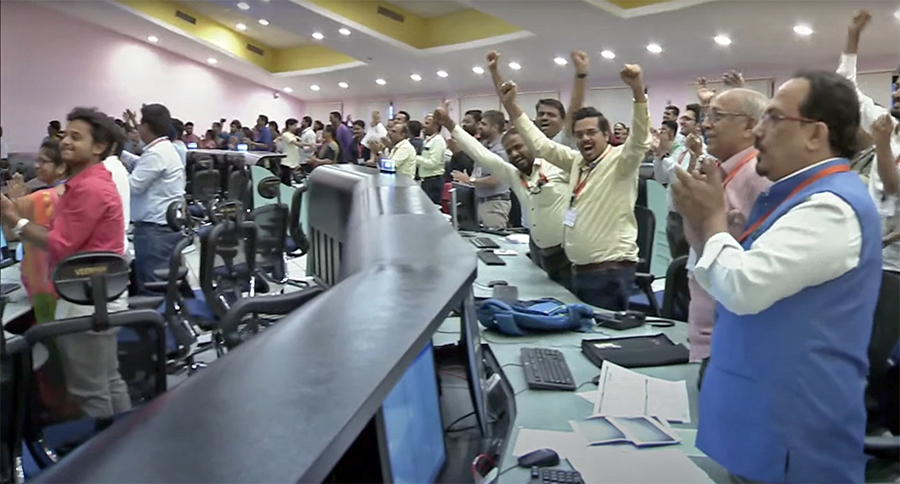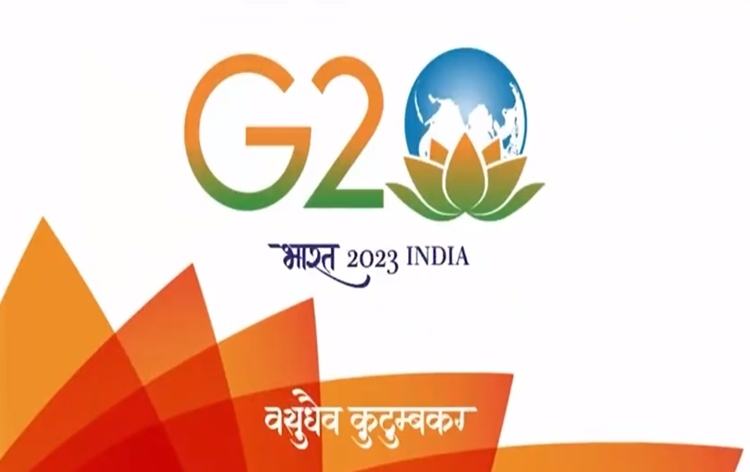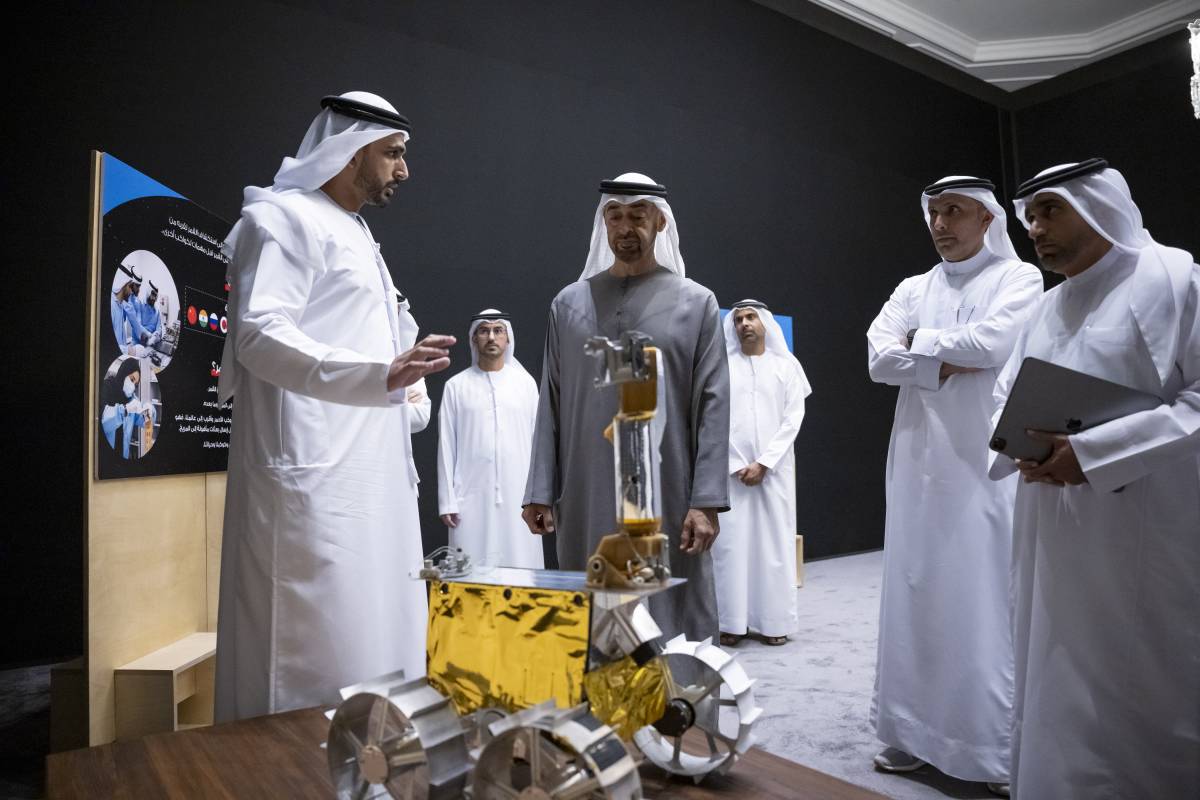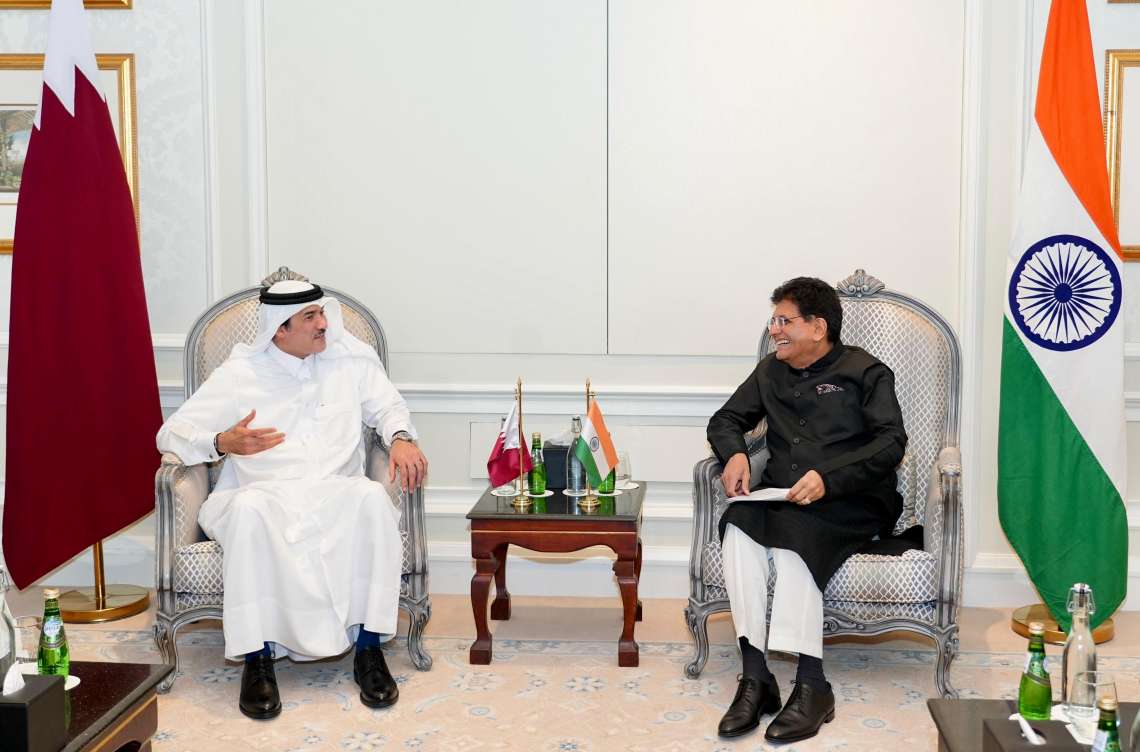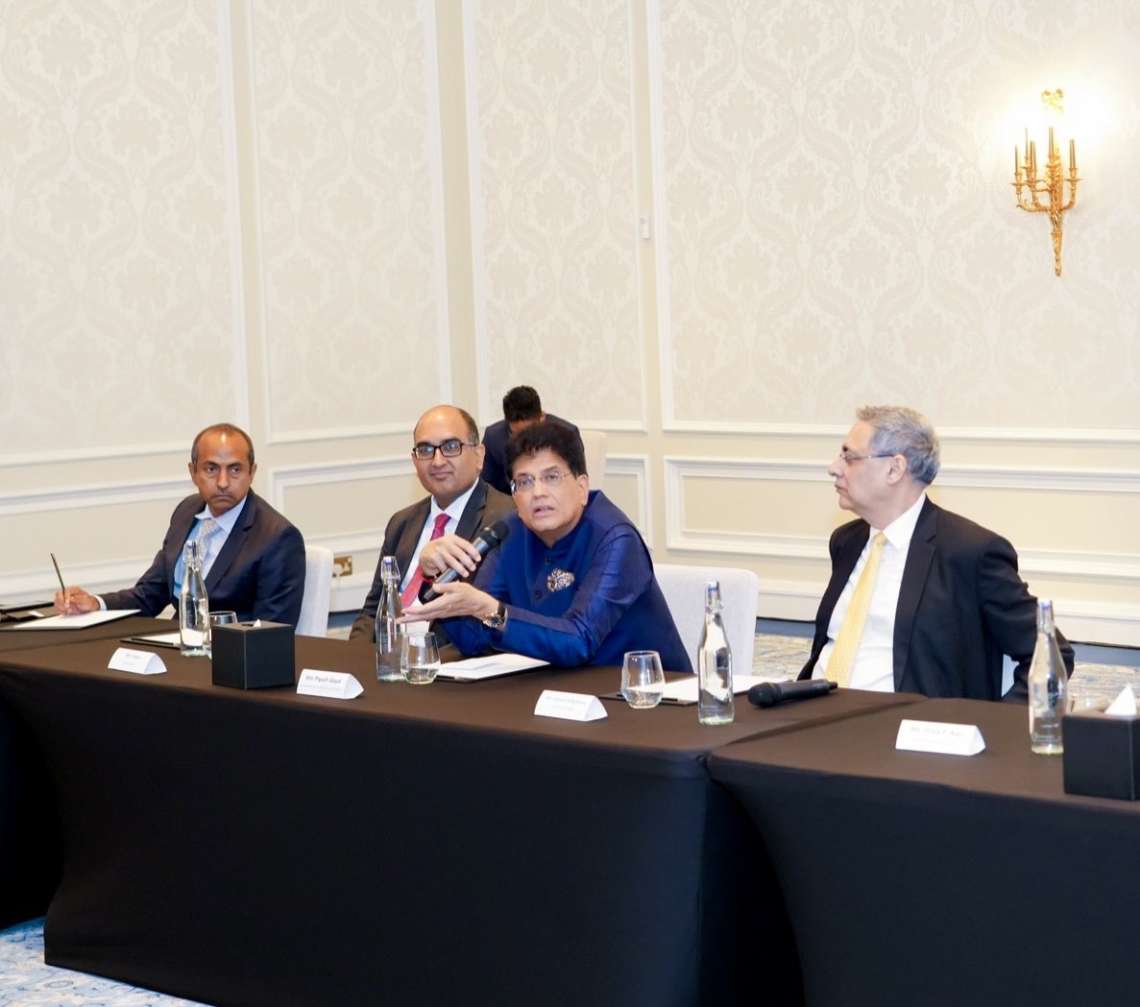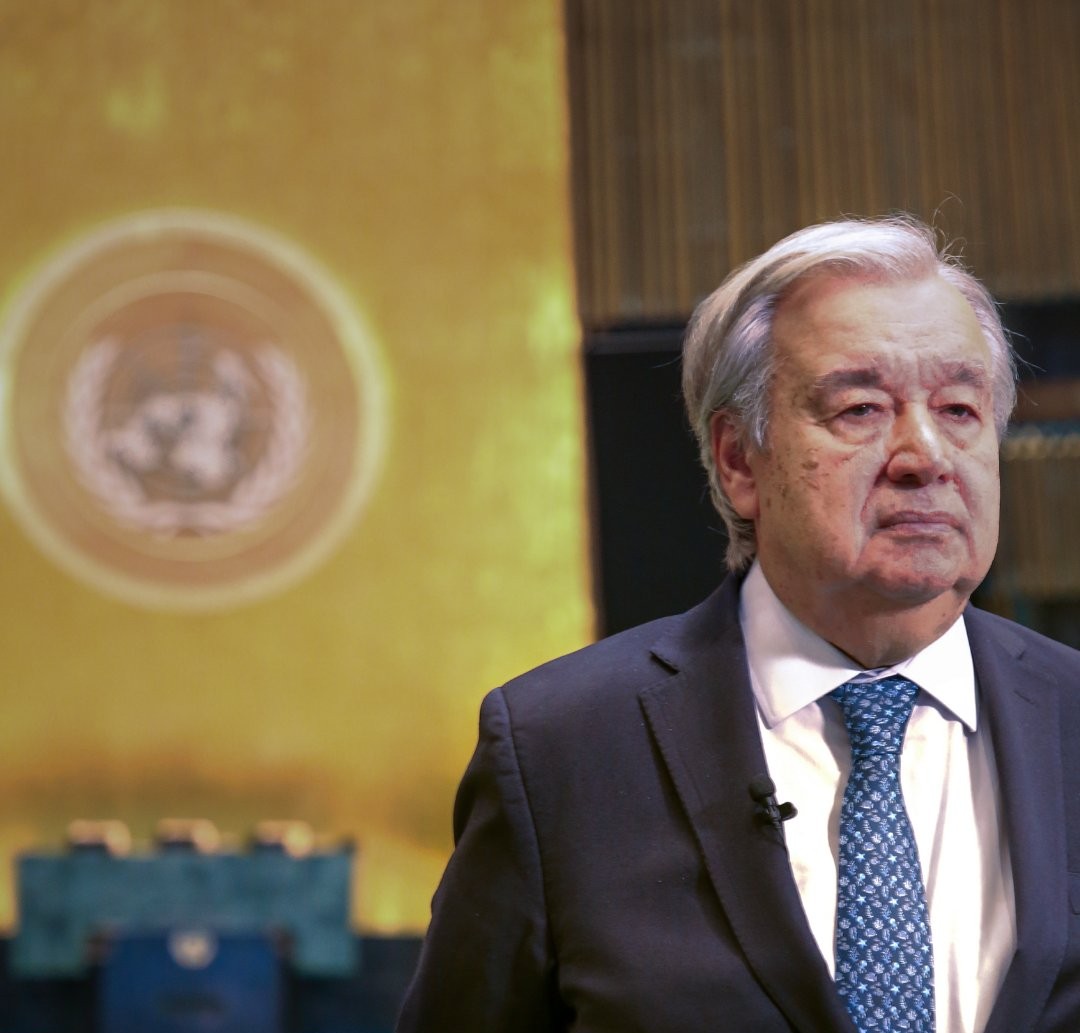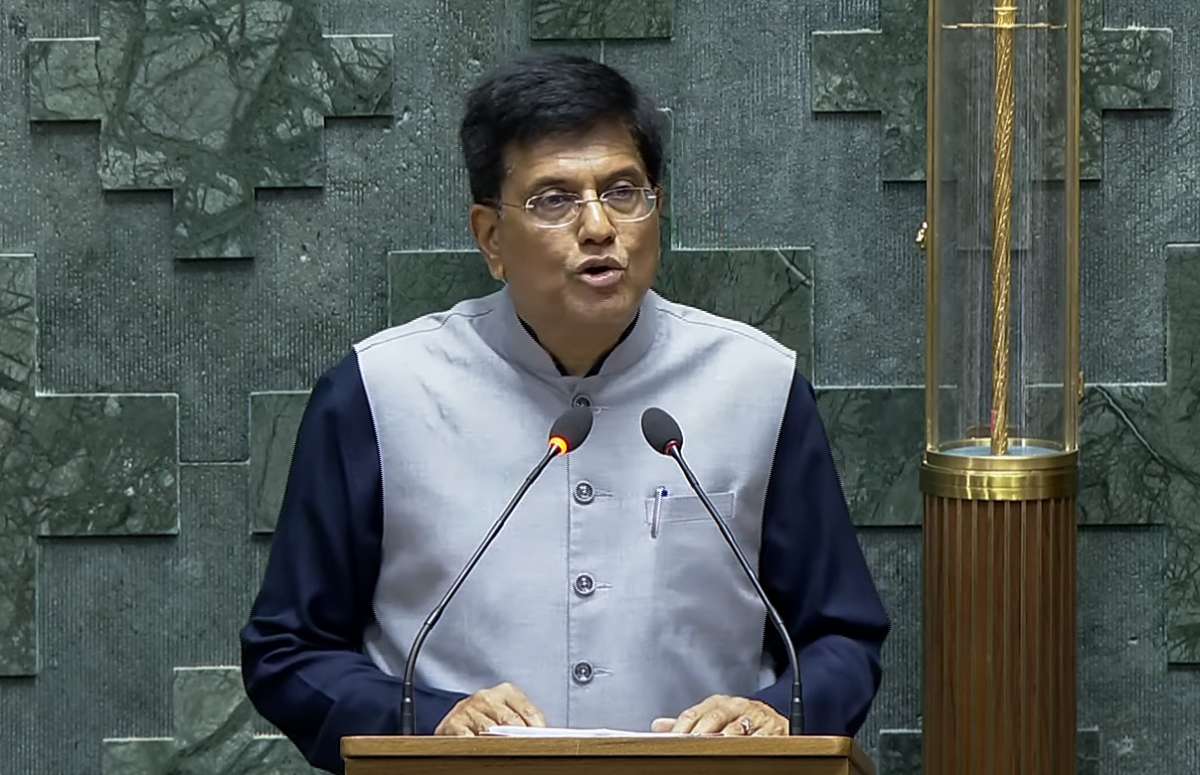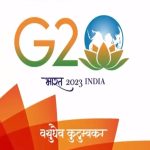Experts feel scientists at ISRO and the Indian leadership took a risk to choose one of the moon’s poles as its destination, writes Nirendra Dev
It’s not bravado or pat on the back by any political leader. Experts around the world are now saying the obvious — India has joined the global space race.
“India becomes the first country to land a spacecraft on the moon’s South Pole, a rugged region where deep craters lie in permanent shadow and where ice could provide water, oxygen and fuel for future missions,” said ‘The Guardian’ in a special article penned by its science editor Ian Sample.
The ‘New York Times’ wrote, “India’s Chandrayaan-3 mission is set to ‘begin exploring an area of the moon that was yet to be visited and has water ice that could be a resource for future missions.”
The NYT headline is quite loaded and could flatter ego: “In Latest Moon Race, India Lands First in Southern Polar Region.”
“India’s aim to land on moon’s South Pole signals ambition to join global space race” — ‘South China Morning Post’ said in an article before the successful landing by Vikram, part of India’s Chandrayaan-3 mission, that dropped steadily on its thrusters to the rock below, slowed to a hover as it approached the ground, and finally came to a rest on the dusty terrain.
The Guardian article also said: “The global space launch market is expected to grow from $9 billion this year to more than $20 billion in 2030. Beyond satellite launches, big space agencies including NASA, the European Space Agency, Russia and China are gearing up… There will be a place for many countries in going back to the moon.”
Experts feel scientists at ISRO and the Indian leadership took a risk to choose one of the moon’s poles as its destination. This was a “tougher prospect than landing near the equator”, and hence the grand success is also “much sweeter”.
Among others, Russian President Vladimir Putin congratulated India.
Putin congratulated India in a message to PM Narendra Modi published on the ‘Kremlin’ website.
“This is a big step forward in space exploration and of course a testament to the impressive progress made by India in the field of science and technology,” said the Russian leader who stayed away from the ongoing BRICS summit in Johannesburg, but participated virtually.
NASA Administrator Bill Nelson congratulated the ISRO on the landing on X (formerly Twitter).
“Congratulations to India on being the 4th country to successfully soft-land a spacecraft on the Moon… We’re glad to be your partner on this mission!”
Notably, Russia’s Luna-25, which was launched less than two weeks ago, had been on track to get there first before the lander crashed from orbit.
A Reuters report in ‘The South China Morning Post’ said, “The seemingly sudden competition to get to a previously unexplored region of the moon recalls the space race of the 1960s, when the United States and the Soviet Union competed. But now space is a business, and the moon’s south pole is a prize because of the water ice there that planners expect could support a future lunar colony, mining operations and eventual missions to Mars.”
An article in ‘The Washington Post’ a few days back said, “The moon may be dead and desolate, but it is now the hottest real estate in the solar system, generating interest from countries across the globe eager to demonstrate their technological prowess and aid humanity in understanding its closest celestial neighbour.”
Prime Minister Narendra Modi shared his ambitions when he said in his first globally televised message after the landing from Johannesburg, “The human-centric approach that we represent has been welcomed universally. Our moon mission is also based on the same human-centric approach.
“Therefore, this success belongs to all of humanity. And it will help moon missions by other countries in the future. I am confident that all countries in the world, including those from the Global South, are capable of achieving such feats. We can all aspire for the moon and beyond.”
(Nirendra Dev is a New Delhi-based journalist. He is also author of the books ‘The Talking Guns: North East India’, and ‘Modi to Moditva: An Uncensored Truth’. Views expressed are personal)
ALSO READ-Chandrayaan-3’s Success a Testament to India’s Vision: Ruchira Kamboj

